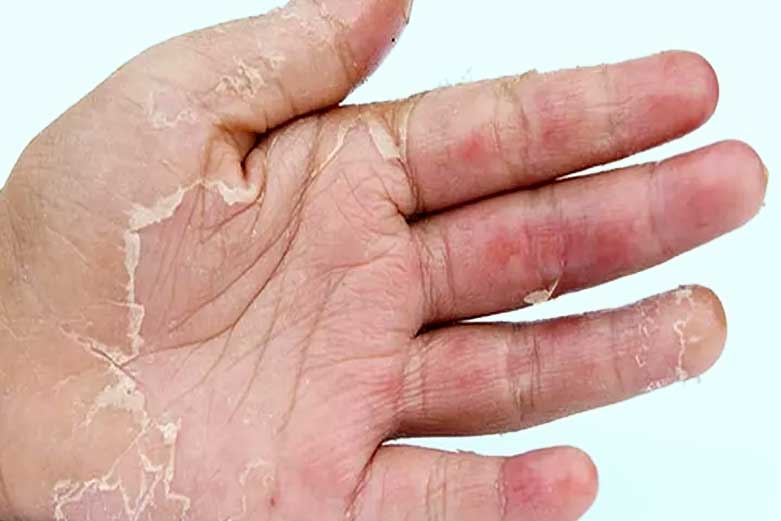
(Image source from: Indiatv.in)
Five causes of Skin Peeling on Hands:- People frequently use their hands, exposing them to sunlight, water, irritants, and allergens, which can lead to possible skin damage and peeling. For some people, peeling skin can be a sign of dryness. It could also be due to skin conditions such as eczema and psoriasis, which can be annoying and interfere with daily activities. The approach to treating peeling hands varies depending on the underlying cause, but typically involves using moisturizing lotions or balms to rehydrate the skin. In certain situations, prescription medications aimed at getting to the root of a problem may be necessary.
Overwashing: Washing your hands regularly is a good habit to stay clean. However, excessive washing can cause the skin on your hands to peel. In addition, using harsh soaps, water that is too hot, and not moisturizing after washing can cause problems with the skin of your hands. While hand washing disinfects, it also removes the natural oils that nourish and moisturize the skin.
Another habit that leads to dry and peeling hands is overuse of hand sanitizer. The alcohol content in hand sanitizers can dry out your skin.
Climate: Climate can significantly affect the condition of the skin on your hands. For example, in winter, humidity decreases, which can cause the skin on your palms to dry out, crack, and peel. If a person's hands sweat excessively in hot weather, it can also cause skin irritation and peeling.
Sunburn: Excessive sun exposure can cause sunburn on any part of the body that is exposed to the sun, including the hands. As the sunburn heals, the skin may peel off.This exfoliation process involves the body removing damaged skin to pave the way for a new, healthy top layer.
Atopic dermatitis of the hands: Atopic dermatitis of the hands occurs when the barrier function of the skin is impaired, often caused by exposure to irritants. It usually manifests itself in vesicular or discoid patterns. Vesicular eczema is characterized by itchy, skin-colored, blistered patches, often caused by sweating. Discoid eczema appears as distinct, scattered plaques that may be a reaction to dry skin, scratching, or contact with irritants.
APSS: Acral skin peeling syndrome (APSS) is an extremely rare skin disorder characterized by a painless peeling of the top layer of skin. This disease primarily affects the hands and feet, but can also spread to the arms and legs. Peeling usually begins at birth, but symptoms may become noticeable in childhood or later in adulthood. The condition tends to worsen when exposed to heat and humidity.













